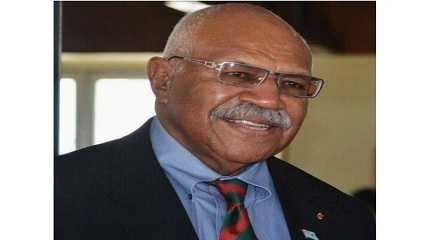
SUVA, Aug. 8 (Xinhua) -- Civil society organizations in Fiji are urging Prime Minister Sitiveni Rabuka to reevaluate his position regarding Japan's planned discharge of nuclear-contaminated wastewater from the crippled Fukushima Daiichi nuclear power plant into the Pacific Ocean.
Rabuka recently expressed contentment with the International Atomic Energy Agency (IAEA)'s report on Japan's radioactive wastewater discharge plan, Fiji Broadcasting Corporation reported on Tuesday.
Climate activist and Pacific Conference of Churches general secretary James Bhagwan claimed that this situation coincides with Japan's increased development assistance to the region.
The IAEA said in its final report in early July that the planned discharge is in conformity with the agreed international standards. However, the IAEA report has failed to dispel the concerns and received criticism from people in Japan and the rest of the world.
Bhagwan also asserted that the credibility of the IAEA report is being contested, saying the report has been disputed by a panel of independent global experts that were appointed by the Pacific Islands Forum (PIF).
He called on the prime minister to "read the report by the independent experts and consider the concerns that they have raised in this report."
The coordinator of the Alliance for Future Generations, a youth-led network, Lavetanalagi Seru has also voiced concerns.
"This is about justice; this is about our livelihood and our future, and we cannot afford to make the mistake of dumping this nuclear waste into the Pacific," Seru said.
These organizations are appealing to the Fijian government to reconsider its stance and take a firmer position in advocating for the implementation of secure and sustainable solutions for handling Fukushima's nuclear wastewater.
Keshmeer Makun, a lecturer at the University of the South Pacific (USP) based in the Fijian capital Suva, told Xinhua that Pacific island countries have made their objections very clear that Japan should not release radioactive wastewater into the ocean.
He said the PIF leaders need to "take actions" against Japan's intention.
Despite strong opposition from neighboring and Pacific island countries, as well as local fishermen over the irreversible impacts on the marine environment and public health, the Japanese government has been pushing for release of the radioactive wastewater from the Fukushima nuclear power plant hit by a massive earthquake and an ensuing tsunami in March 2011.




